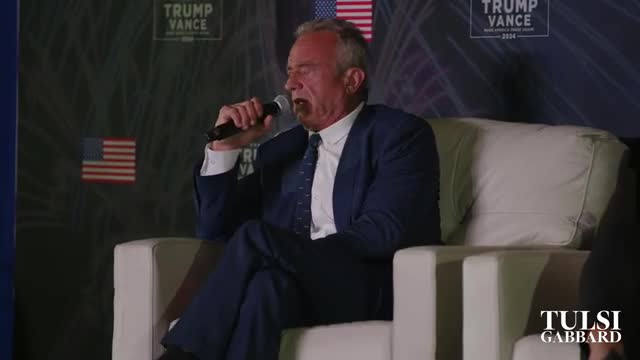Democratic Party transforms into neocon stronghold
October 20, 2024 | Robert F. Kennedy Jr., Presidential Candidates 2024
This article was created by AI summarizing key points discussed. AI makes mistakes, so for full details and context, please refer to the video of the full meeting. Please report any errors so we can fix them. Report an error »

In a recent government meeting, a prominent speaker expressed deep concerns about the transformation of the Democratic Party, arguing that it has shifted from its historical roots as a champion of peace and free speech to a party aligned with military interests and elite financial institutions. The speaker lamented that the party, once associated with figures like Ted Kennedy and labor unions, now appears to embrace neoconservative ideologies, citing endorsements from former CIA officials and controversial figures like Dick Cheney and John Bolton.
Highlighting a stark divide, the speaker noted that the Democratic Party's base has become increasingly wealthy, with statistics indicating that those who voted for President Biden in 2020 owned 70% of the nation's wealth, contrasting sharply with the 30% owned by Trump voters. This shift, they argued, reflects a broader trend where the Republican Party has begun to represent the working class and small entrepreneurs, while the Democrats cater to Wall Street and corporate interests.
The speaker's remarks underscored a growing discontent among some constituents regarding the party's current direction, suggesting that the Democratic Party has lost touch with its foundational values and the working-class citizens it once represented. The implications of this shift could have significant ramifications for future elections and the political landscape in the United States.
Highlighting a stark divide, the speaker noted that the Democratic Party's base has become increasingly wealthy, with statistics indicating that those who voted for President Biden in 2020 owned 70% of the nation's wealth, contrasting sharply with the 30% owned by Trump voters. This shift, they argued, reflects a broader trend where the Republican Party has begun to represent the working class and small entrepreneurs, while the Democrats cater to Wall Street and corporate interests.
The speaker's remarks underscored a growing discontent among some constituents regarding the party's current direction, suggesting that the Democratic Party has lost touch with its foundational values and the working-class citizens it once represented. The implications of this shift could have significant ramifications for future elections and the political landscape in the United States.
View full meeting
This article is based on a recent meeting—watch the full video and explore the complete transcript for deeper insights into the discussion.
View full meeting